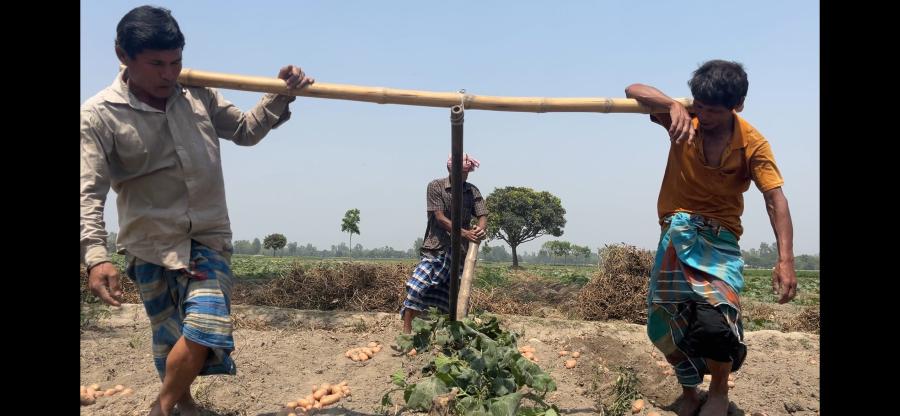
British company GCM Resources was dealt a serious blow today as the Organisation for Economic Cooperation and Development (OECD) agreed to consider complaints regarding severe human rights violations associated with the company’s planned coal mine in Bangladesh.
GCM wants to open a massive open-pit coal mine in Phulbari in the north-west of Bangladesh, displacing up to 220,000 people and threatening the Sundarbans, one of the world’s largest remaining mangrove forests and a UNESCO World Heritage site.
The complaint by the International Accountability Project and the World Development Movement claims that the mine planned by the AIM-listed company would breach OECD Guidelines for Multinational Enterprises. It would violate the human rights of indigenous people from 23 different tribal groups, and destroy nearly 12,000 acres of Bangladesh’s most fertile and productive farmland.
Eighty per cent of local people depend on the land for their survival, but GCM will not replace their land and its project plans state that “most households will become landless.”
GCM appealed to the OECD to reject the complaint, but the UK National Contact Point, the governmental body that addresses violations of the OECD guidelines by British companies abroad, has agreed to pursue the issue.
The investigation will evaluate whether GCM has breached obligations to ensure meaningful and adequate consultation about the project, or to carry out appropriate due diligence to ensure that its project does not violate people's human rights.
GCM has faced repeated protests in Bangladesh against the mine. Three people were killed and many more injured when paramilitary officers opened fire on a protest against the project in 2006. In January this year, further protests forced the company’s CEO Gary Lye to abandon a visit to the area.
Seven UN human rights experts have called for an immediate halt to the project.
Kate Hoshour from the International Accountability Project said: “The UN’s most senior human rights experts have warned that the mine threatens the fundamental human rights of hundreds of thousands of people, including their rights to food and water. GCM’s response has been to redouble aggressive efforts to force the project forward. We welcome the OECD’s decision to investigate.”
Christine Haigh, campaigner at the World Development Movement, said: “This is a clear sign that extractive companies cannot disregard the rights of the people whose land they take and expect to get away with it. The people of Phulbari do not want this coal mine. GCM should listen to them and abandon the project.”
Rumana Hashem, an eye witness to the violence carried out against the people of Phulbari during protests against GCM’s plans in 2006, said: “I am pleased that the OECD has recognised the threats posed by the proposed Phulbari project, although some of the points in its statement should have been stronger. I thought the mine would be cancelled after the violence I saw in 2006. I hope that now it will be, and that GCM will no longer be allowed to operate in Bangladesh.”
Read the Initial Assessment of the OECD’s UK National Contact Point


